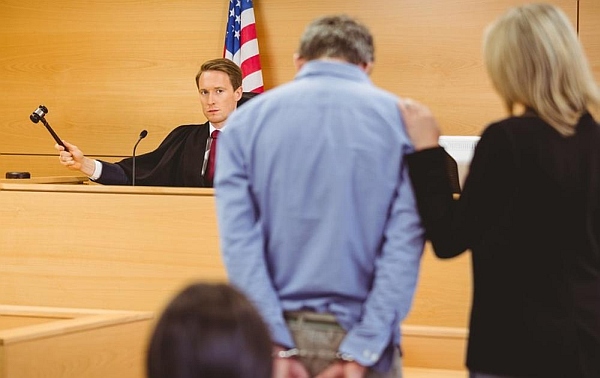Many people are taken aback when an officer arrests someone without reading their Miranda rights. They wonder what the legal implications are. Miranda rights safeguard a suspect’s oral or written statements made after an arrest and in response to an officer’s question (i.e., if no rights advisement, the statement itself would be potentially inadmissible in evidence).
Officers in North Carolina regularly fail to read Miranda rights during DWI arrests. A suspect is typically unaware of their Miranda rights during the whole encounter with the police, but does that mean the arrest is still legal?
The absence of Miranda warnings in the context of a DWI arrest is unlikely to result in charges being dismissed. The majority of the time, statements made by a DWI defendant after arrest are irrelevant to the State’s case. The State may be able to proceed to trial on a DWI allegation based on the suspect’s comments and field sobriety testing prior to arrest, as well as a blood or breath alcohol result.
Suppose there is a question about who was driving the vehicle or whether the suspect has drunk alcohol since driving. In that case, Miranda rights should be adequately advised before police ask inquiries after a DWI arrest for it to be properly legal.
Speaking with an expert North Carolina DWI lawyer will help you assess if the lack of Miranda warning can be used to your advantage in your case.
Is It Legal for Me to Ask for an Attorney Before Giving a Blood or Urine Sample?
Although it appears that the answer to this question should be a resounding no, this is not the case.
Even if a person’s blood-alcohol level was below the legal limit, they might still be charged with a DWI in North Carolina. When a police officer sees someone driving in a way that implies they are inebriated, they are arrested. This indicates that, despite not being legally impaired, they were unable to maintain sufficient physical and mental capacities to drive safely in the officer’s judgment.
Because this form of arrest is based on the arresting officer’s subjective judgment, you have a better chance of beating the charge.
Can I Be Charged With DWI If the Officer Did Not See Me Drive?
Unfortunately, whether or not a police officer spotted you driving down the street behind the wheel of a car, you can be charged with driving while impaired (DWI) in North Carolina. Circumstantial proof that you were in “actual bodily control” of a car. At the same time, inebriated may be sufficient to condemn you – but it depends on the circumstances.
Don’t hesitate to contact us if you’ve been charged with drunk driving or have been caught near a car while intoxicated. We understand that a conviction for this crime can have severe consequences for your reputation, work, and personal life. It’s best to start battling the charge as soon as possible.
What Is North Carolina’s Definition of DWI?
Being under the influence of a controlled substance, having a blood alcohol content (BAC) of 0.08 percent or higher, or having any amount of a Schedule I Controlled Substance in your body constitutes driving while impaired in North Carolina.
What Is the Relationship Between Probable Cause and NC DWI Charges?
According to the State, your reasons for getting behind the wheel are irrelevant, and you can still be charged with impaired driving. After viewing items like these, a law enforcement officer may be able to create probable cause to arrest you.
- Observing an open alcohol container in the passenger compartment
- On the defendant, there is a strong odor of alcohol.
- The defendant’s bloodshot eyes drew attention.
- When there is slurred speech, it’s a sign that something is wrong.
- Obtaining an admission from the offender that they consume alcohol
- Having the defendant take and failed standardized field sobriety tests
What Kind of Testing Can the Police Perform?
Suppose a police officer stops you for suspicion of driving while intoxicated (DWI). In that case, you may be subjected to two types of examinations: field sobriety tests (FST) and chemical analysis tests.
Field sobriety tests are tests that the police might do to determine how effectively you regulate your physical and mental faculties. The officer believes that the more of these tests you fail, the more likely you will be impaired. These tests might also be used as evidence in court to prove your impairment.
Standardized Field Sobriety Tests and Non-Standardized Field Sobriety Tests are the two forms of FSTs.
The following are the three Standardized Field Sobriety Tests:
- Horizontal Gaze Nystagmus Test
- Walk-and-Turn Test, and
- One-Leg-Stand Test
Non-Standardized Tests include the following:
- Romberg Balance Test
- Alphabet Test, and
- Finger Dexterity Test
When doing Standardized Field Sobriety Tests, police officers must closely follow the specified procedures for these tests to be effective. Suppose your lawyer can show that the officer did not follow the rules. In that case, it will cast doubt on your supposed impairment, making it more difficult for the State to prove your guilt at trial.
Blowing into a breathalyzer, having blood collected, or delivering a urine sample are all examples of chemical analysis testing. In North Carolina, you have granted implied permission to these tests as a condition of acquiring a driver’s license.
Call Us If You’re Facing DWI Charges in Asheville
According to the Supreme Court, the use of random DWI checks is constitutionally permissible. The Supreme Court justified this by examining the number of accidents and fatalities caused by drunk driving. The police were given the authority to set up random DWI checks because the government is interested in avoiding and minimizing these problems.
If you have been charged with a DWI, please get in touch with our Asheville DUI lawyers for a consultation. We’ll use all of the resources at our disposal to fight your case.




